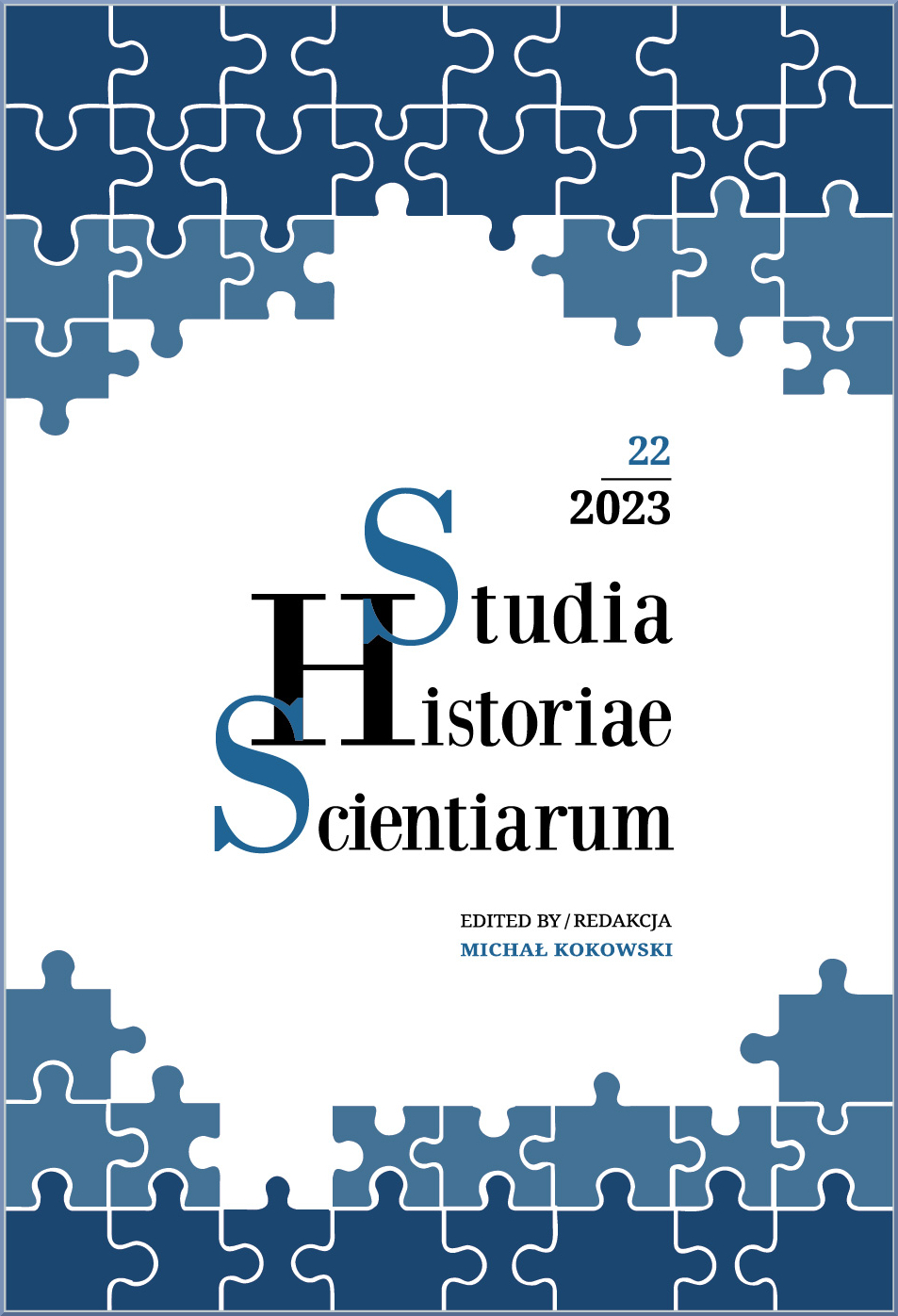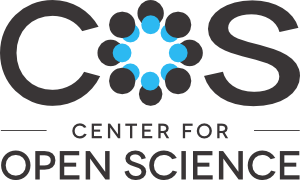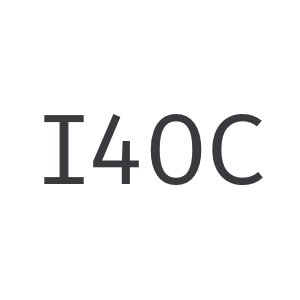Debata na temat redukcjonizmu w biologii molekularnej: Podejście komplementarne Maxa Delbrücka
DOI:
https://doi.org/10.4467/2543702XSHS.23.016.17707Słowa kluczowe:
antyredukcjonizm, wyjaśnienie, biologia molekularna, Max Delbrück, podejście komplementarneAbstrakt
W tym artykule omawiam koncepcyjne i eksperymentalne znaczenie Maxa Delbrücka dla początków biologii molekularnej (odtąd MB). W szczególności jego podejście do komplementarności i jego antyredukcyjne implikacje dla (epistemicznej) debaty redukcjonistycznej w MB.
Jeśli chodzi o konceptualne i eksperymentalne znaczenie Delbrücka, badam jego migrację od fizyki do biologii, a tym samym jego wpływ na rozwój MB. Podkreślam jego rolę jako centralnej postaci „The Phage Group”, czyli nieformalnej grupy naukowców, która wykorzystywała bakteriofagi jako eksperymentalne modele do badania pochodzenia i dziedziczności życia. Delbrück i „The Phage Group” wywarli ogromny wpływ na rozwój MB, którego kulminacją była wspólna nagroda Nobla w 1969 r. za odkrycia dotyczące mechanizmu replikacji i struktury genetycznej wirusów.
Ponadto badam komplementarność podejścia Delbrücka do wyjaśnień biologicznych. Komplementarność w biologii zakłada, że zjawiska biologiczne mogą wymagać stosowania wzajemnie wykluczających się opisów, ale wspólnie niezbędnych do zrozumienia procesów życiowych. Badam podejście Delbrücka do komplementarności, w szczególności debatę między redukcyjnymi i antyredukcyjnymi interpretacjami na jego temat. Opowiadam się za tą drugą interpretacją, sugerując, że Delbrück rozwinął antyredukcyjny pogląd na wyjaśnienia biologiczne, opowiadając się za niezależnym statusem wyjaśnień różnych dyscyplin biologicznych. Ponadto zajmuję się podejściem komplementarności w świetle antyredukcyjnej interpretacji ostatnich osiągnięć w MB, w szczególności możliwości znalezienia podejścia komplementarności w biologii systemowej, epigenetyce i selekcji granic.
Bibliografia
Bala, Arun 2017: Complementarity Beyond Physics: Niels Bohr’s Parallels. Palgrave Macmillan.
Bechtel, William; Richardson, Robert 2010: Discovering Complexity: Decomposition and Localization as Strategies in Scientific Research. Cambridge: MIT Press.
Bohr, Niels 1933: Light and Life. Nature 131, pp. 421–423, 457–459. DOI: 10.1038/131457a0.
Brigandt, Ingo; Love, Alan 2022: Reductionism in Biology, The Stanford Encyclopedia of Philosophy (Summer 2022 Edition), Edward N. Zalta (ed.), URL: https://plato.stanford.edu/archives/sum2022/entries/reduction-biology/.
Darden, Lindley 2005: Relations Among Fields: Mendelian, Cytological and Molecular Mechanisms. Studies in History and Philosophy of Biological and Biomedical Sciences 36, pp. 349–371. DOI: 10.1016/j.shpsc.2005.03.007.
Delbrück, Max 1949: A Physicist Looks at Biology. Transactions of the Connecticut Academy of Arts and Sciences 38, pp. 173–190. URL: https://faculty.washington.edu/lynnhank/Delbruck.pdf (accessed on 15 November 2022)
Domondon, T. Andrew 2006: Bringing Physics to Bear on the Phenomenon of Life: The Divergent Positions of Bohr, Delbrück, and Schrödinger. Studies in History and Philosophy of Biological and Biomedical Sciences 37, pp. 433–458. DOI: 10.1016/j.shpsc.2006.06.014.
Dupre’, John 2021: The Metaphysics of Biology. Cambridge University Press. DOI: 10.1017/9781009024297.
Fischer, Ernst. P.; Lipson, Carol 1988: Thinking about Science. Max Delbrück and the Origins of Molecular Biology. New York: Norton. DOI: 10.1126/science242.4886.1711.
Fox Keller, Evelyn 1990: Physics and the Emergence of Molecular Biology: A History of Cognitive and Political Synergy. Journal of the History of Biology 23(3), pp. 389–409. DOI: 10.1007/BF00136376.
Harding, Carolyn 1978: Delbrück, Max, interview by Carolyn Harding. Pasadena, California, July 14–September 11, 1978. Oral History Project, California Institute of Technology Archives. URL: https://oralhistories.library.caltech.edu/16/1/OH_Delbruck_M.pdf (accessed on 20 November 2022).
Hausmann, Rudolf 2002: To Grasp the Essence of Life: A History of Molecular Biology. Dordrecht: Springer. DOI: 10.1007/978-94-017-3540-7.
Hull, David 1976: Informal Aspects of Theory Reduction. [In:] R.S. Cohen and A. Michalos (eds.), Proceedings of the 1974 Meeting of the Philosophy of Science Association, Dordrecht: D. Reidel, pp. 653–670. DOI: 10.1007/978-94-010-1449-6.
Keiser, Marie, I. 2011: Limits of Reductionism in the Life Sciences. History and Philosophy of the Life Sciences 33, pp. 453–476. Stable URL: https://www.jstor.org/stable/23335178.
Kitcher, Philip 1984: 1953 and All That: A Tale of Two Sciences. Philosophical Review 93, pp. 335–373. DOI: 10.2307/2184541.
Kornberg, Arthur 1987: The Two Cultures: Chemistry and Biology. Biochemistry 26, pp. 6888–6891. DOI: 10.1021/bi00396a002.
Mazzocchi, Fulvio 2010: Complementarity in Biology. EMBO reports 11, pp. 339–344. DOI: 10.1038/embor.2010.56.
Mazzocchi, Fulvio 2012: Complexity and the Reductionism-Holism Debate in Systems Biology. Wiley Interdisciplinary Reviews. Systems Biology and Medicine 4(5), pp. 413–427. DOI: 10.1002/wsbm.1181.
McKaughan, Daniel, J. 2005: The Influence of Niels Bohr on Max Delbrück: Revisiting the Hopes Inspired by “Light and Life”. Isis 96(4), pp. 507–529. DOI: 10.1086/498591.
McKaughan, Daniel J. 2011: Was Delbrück a Reductionist? In Sloan, P. and Fogel, B., eds. Creating a Physical Biology: The Three-Man Paper and Early Molecular Biology. Chicago: University of Chicago Press. https://doi.org/10.1163/22977953-06902016.
O’Malley, Maureen, A.; Dupre’, John 2005: Fundamental Issues in Systems Biology. BioEssays 27, pp. 1270–1276. DOI: 10.1002/bies.20323.
Plotnitsky, Arkady 2013: Niels Bohr and Complementarity: An Introduction. New York: Springer. https://doi.org/10.1007/978-1-4614-4517-3.
Roll-Hansen, Nils 2000: The Application of Complementarity to Biology: From Niels Bohr to Max Delbrück. Historical Studies in the Physical and Biological Sciences 30(2), pp. 417–442. DOI: 10.2307/27757838.
Roll-Hansen, Nils 2011: Niels Bohr and Max Delbrück: Balancing Autonomy and Reductionism in Biology. [In:] Sloan, P. and Fogel, B., eds. Creating a Physical Biology: The Three-Man Paper and Early Molecular Biology. Chicago: University of Chicago Press. DOI: 10.2307/27757838.
Rosenberg, Alex 1997: Reductionism Redux: Computing the Embryo. Biology and Philosophy 12, pp. 445–470. DOI: 10.1023/A:1006574719901.
Rosenfeld, Leon 1961: Foundations of Quantum Theory and Complementarity. Nature 190, pp. 384–388. DOI: 10.1038/190384a0.
Sarkar, Sahotra 1992: Models of Reduction and Categories of Reductionism. In: S. Sarkar (ed.). 2005. Molecular Models of Life. Cambridge: The MIT Press.
Schaffner, Kenneth, F. 1993: Discovery and Explanation in Biology and Medicine, Chicago: University of Chicago Press.
Schaffner, Kenneth, F. 2002: Reductionism, Complexity and Molecular Medicine: Genetic Chips and the ‘Globalization’ of the Genome. In Regenmortel M., Hull D. (eds.), Promises and Limits of Reductionism in the Biomedical Sciences, 323–351. Chichester, UK: Wiley. DOI: 10.1002/0470854189.
Strauss, Bernard, S. 2017: A Physicist’s Quest in Biology: Max Delbrück and “Complementarity”. Genetics 206, pp. 641–650. DOI: 10.1534/genetics.117.201517.
Strohman, Richard 1997: The Coming Kuhnian Revolution in Biology. Nat Biotech 15: 194–200. DOI: 10.1038/nbt0397-194.
Summers, William, C. 1993: How Bacteriophage Came to Be Used by the Phage Group. Journal of the History of Biology 26(2), pp. 255–267. DOI: 10.1007/BF01061969.
Tabery, James; Piotrowska, Monika; Darden, Lindley 2021: Molecular Biology. The Stanford Encyclopedia of Philosophy (Spring 2021 Edition), Edward N. Zalta (ed.). URL: https://plato.stanford.edu/archives/spr2021/entries/molecular-biology/.
Theise, Neil D.; Kafatos, Menas C. 2013: Complementarity in Biological Systems: A Complexity Views. Wiley Periodicals 18(6), 11-20. DOI: 10.1002/cplx.21453.
Theise, Neil, D.; Krause, Diane 2002: Toward a New Paradigm of Cell Differentiation Capacity. Leukemia 16, pp. 542–548.
Waters, Kenneth, C. 1990: Why the Anti-Reductionist Consensus Won’t Survive: the Case of Classical Mendelian Genetics. PSA: Proceedings of the Biennial Meeting of the Philosophy of Science Association, pp. 125–139.
Wimsatt, William C. 1976: Reductive Explanation: a Functional Account, in R.S. Cohen and A. Michalos (eds.), Proceedings of the 1974 Meeting of the Philosophy of Science Association, Dordrecht: D. Reidel, pp. 671–710.
Pobrania
Opublikowane
Jak cytować
Numer
Dział
Funding data
-
Hrvatska Zaklada za Znanost
Grant numbers HRZZ-IP-2018-01-3378;HRZZ-DOK-2018-09-7078





























